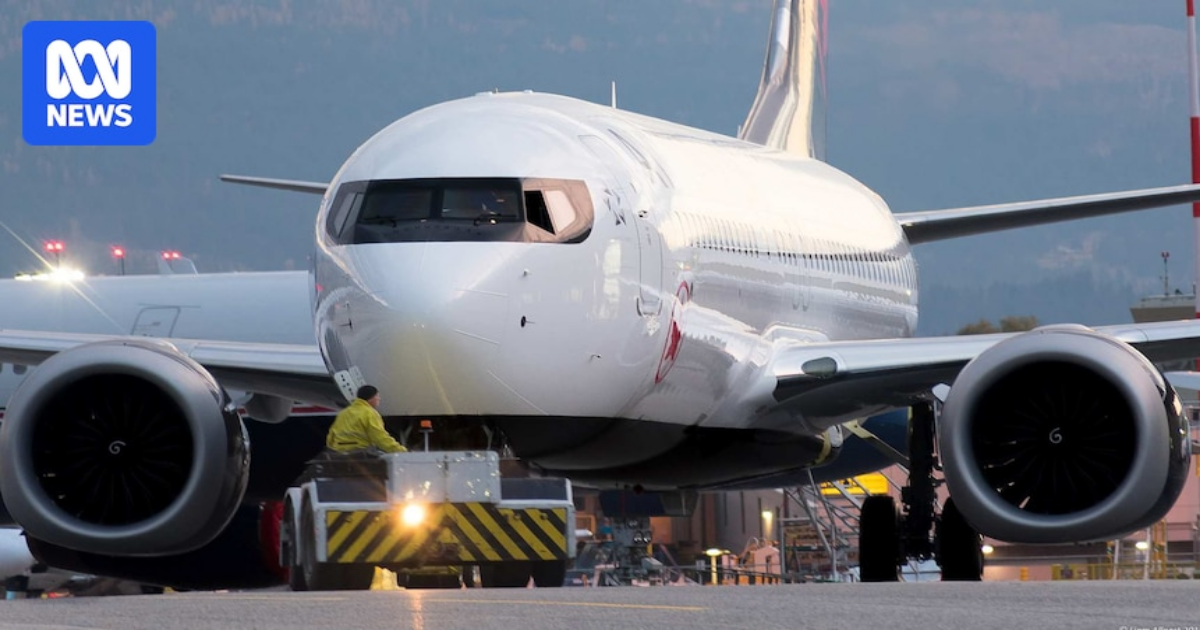China has reportedly ordered its airlines to pause all incoming deliveries of American-made Boeing aircraft in response to Donald Trump’s 145 per cent tariffs on Chinese goods.
The three main Chinese airlines were expected to take delivery of 179 Boeing planes between now and 2027 — more planes than the entire Qantas main fleet — in deals worth billions of dollars.
But that plan has been put on hold, according to reports from Bloomberg News.
International aviation consultant Neil Hansford said China would be the biggest loser from this latest trade spat.
“In the end China is cutting off its nose to spite its face because [the country] has a shortage of aircraft after COVID,” he said.
“Its aviation industry isn’t recovering in passenger terms — it’s emotive, but when it gets to the cut and thrust, it’s China who will pay the price.”
Mr Hansford said the upheaval meant Boeing could focus on sending planes elsewhere.
“It’ll assist Boeing because they can actually start bringing deliveries to other customers,” he said.
“Everybody is short of equipment, we’re all trying to give maintenance to aircraft.
“So for the rest of the aviation world it’s a good thing.”
Mr Hansford said China would still have access to jets from elsewhere, “but they need Boeing’s because COVID set us years behind in the building of aircraft”.
‘Handshakes rather than fist fights’
The larger trade war between China and the United States shows no sign of cooling.
US tariffs on China stand at 145 per cent and in return China has imposed 125 per cent tariffs on American goods entering its borders.
China’s Foreign Ministry spokesman Lin Jian said his country was open for business.
“In the face of external uncertainties, China will adhere to handshakes rather than fist fights, tearing down walls rather than building barriers, and connecting rather than decoupling,”
he said.
“We will continue to expand our circle of friends in trade, strengthen the gravitational field of investment, and inject more stability and positive energy into the world economy through high-quality development and high-level opening-up.”
Meanwhile, a Communist Party official in Hong Kong, Xia Baolong, has clapped back to a recent reference to Chinese “peasants” made by US Vice President JD Vance.
“The repeated attempts of the US to contain and suppress Hong Kong will only result in the end of its agents in Hong Kong, and will backfire, and harm itself,” he said.
“Those peasants from the US will soon be crying tears in front of China’s 5,000 years of civilisation.”
Donald Trump attends a bilateral meeting with China’s President Xi Jinping during the G20 leaders summit in 2019. (Reuters: Kevin Lamarque)
US waiting on China
White House press secretary Karoline Leavitt said the US president was waiting on China to come to the table.
“The president has made his position on China quite clear,” she said.
“The ball is in China’s court — China needs to make a deal with us, we don’t have to make a deal with them.
“There’s no difference between China and any other country except they are much larger and China wants what we have … they need our money.
“The president has made it quite clear that he’s open to a deal with China, but China needs to make a deal with the United States of America.”
Most countries are facing a 10 per cent tariff, except for some goods from Canada and Mexico.
